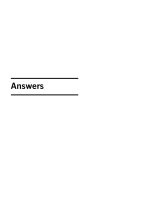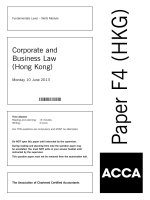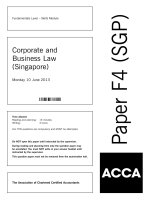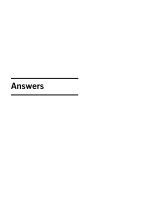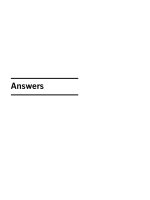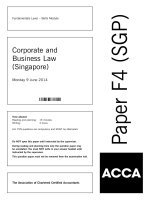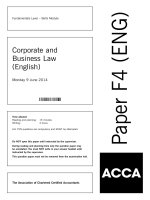Acca f4 corporate and business law singapore 2013 jun questions
Bạn đang xem bản rút gọn của tài liệu. Xem và tải ngay bản đầy đủ của tài liệu tại đây (88.18 KB, 4 trang )
Corporate and
Business Law
(Singapore)
Monday 10 June 2013
Time allowed
Reading and planning:
Writing:
15 minutes
3 hours
ALL TEN questions are compulsory and MUST be attempted.
Do NOT open this paper until instructed by the supervisor.
During reading and planning time only the question paper may
be annotated. You must NOT write in your answer booklet until
instructed by the supervisor.
This question paper must not be removed from the examination hall.
The Association of Chartered Certified Accountants
Paper F4 (SGP)
Fundamentals Level – Skills Module
ALL TEN questions are compulsory and MUST be attempted
1
In relation to the Singapore legal system, explain the structure of the courts and their operation.
(10 marks)
2
In relation to the law of contract, explain the FOUR elements in the formation of a contract.
(10 marks)
3
In relation to the law of contract, explain the THREE requirements which have to be fulfilled for a restraint of
trade clause to be valid.
(10 marks)
4
Explain and distinguish between the sole trader, limited liability partnership and limited liability company.
(10 marks)
5
In relation to the law on share capital, explain and distinguish between ordinary shares and preference shares.
(10 marks)
6
In relation to company law, discuss the different ways in which a director may be:
(a) appointed to office; and
(4 marks)
(b) removed from office.
(6 marks)
(10 marks)
7
Explain and distinguish between the requirements of fraudulent trading and wrongful trading.
(10 marks)
2
8
Travel Sense Pte Ltd (TS) is a travel agency whose main business is selling package tours and air tickets to travellers.
Wong bought a Bangkok tour package from TS for his family of four. Under the terms of the contract, the package
tour included airfare, hotel accommodation and transfers to and from the airport to the hotel. Wong and his family
had an enjoyable time until the last day of their trip. The tour guide was supposed to turn up at 7 am at the hotel to
drive Wong and his family to the Bangkok airport to catch their 10 am flight home to Singapore. However, the tour
guide did not show up and Wong had to make alternative arrangements for his family to take a taxi to the Bangkok
airport. However, due to peak hour traffic congestion, they arrived at the airport too late to board the plane as their
flight had already taken off.
Wong was upset at having missed the flight. His family had to spend the day at the airport while Wong tried to buy
tickets for the next available flight back to Singapore. As many of the flights were full, Wong failed to get on a flight
home the same day, and only managed to get tickets for a flight which was leaving Bangkok the next morning. By
that time it was already late and his family was exhausted after spending a day at the airport. Wong had no choice
but to check his family into a hotel for the night.
Wong wants to sue TS for breach of contract. He wants to claim compensation for the cost of the additional air tickets,
the cost of the extra night hotel accommodation and for the unhappiness and stress which his family experienced. In
addition, Wong, a sole trader of a small catering business, is claiming a sum of $5,000 as compensation for the loss
of a contract deal which fell through because he had missed a meeting with a potential client who wanted catering
for a wedding.
Required:
Advise Wong on whether he will succeed in claiming damages from TS.
(10 marks)
9
Alex, Ben and Carol, who were good friends since university days, incorporated Max Pte Ltd (Max) in 2009. The
shares in Max were held by the following persons: Alex 50%, Ben 40% and Carol 10%, and all three were directors
of Max. The understanding between Alex, Ben and Carol was that all three of them would be involved in the
management of the company.
After some time, Carol noticed that Alex and Ben had bought for themselves two brand new luxury cars on hire
purchase financing, paid for by Max. When queried by Carol, both Alex and Ben claimed that they needed the cars
to chauffeur important clients around. Carol also observed that Alex and Ben entertained lavishly and had made
claims for meals and drinks which amounted to $2,000 or more each time. Furthermore, Alex and Ben procured Max
to give a loan of $500,000 to Safe Travel Pte Ltd, a company whose shares were held by Ben’s brother, Don.
Carol became suspicious and requested an inspection of the accounts. Alex and Ben assured her that things were fine
and evaded her requests for the accounts. When they could no longer evade her requests, they passed an ordinary
resolution at the general meeting to remove Carol as director.
Required:
In relation to the law on minority protection, discuss the actions which Carol may now take.
(10 marks)
3
[P.T.O.
10 Party Fun Pte Ltd (PF) is in the business of selling sophisticated sound and lighting equipment in South East Asia.
PF’s business has been doing reasonably well until recently when its supply of sound and lighting equipment was
badly affected due to the fact that its Japanese supplier’s factory was hit by a severe earthquake. This supply
disruption led to failure on the part of PF to meet its sales orders. Unfortunately, PF’s failures were reported in the
newspapers, which led to a loss of confidence in PF. Consequently, PF’s sales and revenue fell dramatically. PF then
missed payments to their suppliers and landlord.
PF’s creditors threatened legal proceedings if payment were not made within a specified time period. PF’s directors
want to avoid an insolvent liquidation. They have decided to pursue judicial management as an option, as they feel
that this is just a temporary setback and once they manage to obtain an alternative supply channel, things should
improve for PF. However, it may not be so easy to obtain an alternative supply channel as very few companies
manufacture the type of sophisticated equipment required by PF.
Required:
Advise PF’s directors on the likelihood of success of PF’s judicial management application, stating the
assumptions you are making in your advice.
(10 marks)
End of Question Paper
4

